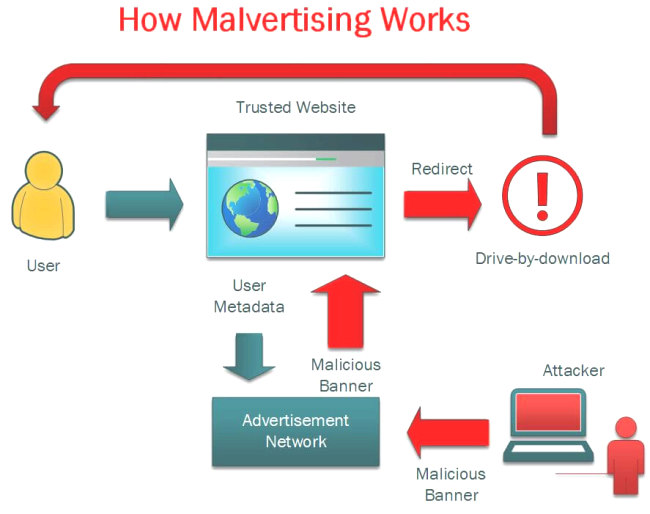<< Todos los mensajes1 julio 2025
The rate at which folks visit adult websites is on the upward trajectory, and the trends show no signs of stopping any time soon. According to report, adult websites are more popular than Amazon and Netflix. But here’s the point: as much watching adult content is often discussed in a morality context, a huge elephant in the house is usually overlooked – security and privacy.
If you think that you will never be affected by such issues, this could be the right time to reconsider. leer más...
25 junio 2025
Can you spot a phishing email if you receive one? Scammers often send emails or text messages to victims in an attempt to trick them into disclosing sensitive information.
And if you're not paying attention, you can get hooked. So what is phishing and how to avoid it? leer más...
20 junio 2025
Have you received an email, phone call, or text message from someone you never heard of but looks authentic? Does it ask for your personal information or credit card data?
Yes? Think twice. You might want to control yourself from clicking on it if you do not want to be a phishing scam victim.
Many financial transactions now take place online, making credit card details prone to scammers and cybercriminals.
To avoid significant financial loss and identity theft, let’s explore the different ways to detect and prevent yourself from falling prey to these phishing attacks. leer más...
11 abril 2025
Data breach is a term that everyone using the internet knows these days. And some people are very casual about it. Well, basically the problem is, you do not know the depths of the water until you start drowning.
So, before it is too late start learning to swim. What we are trying to tell you here is that sharing your data with Facebook, Google is another thing but allowing security threats and making your computer or gadgets prone to hackers is another thing.
So here are some internet security facts that everyone should know while they are accessing the internet. leer más...
6 septiembre 2022
When you browse the web, you may come across a variety of online threats. And these threats aren't limited to malicious websites. If you're not careful, you could accidentally infect your computer with malicious software even when visiting the most legitimate of sites.
But how's that possible? In a word, malvertising.
Malvertising (malicious advertising) is a relatively new cyberattack technique that inserts malicious code into digital advertisements. These infected ads are usually served to consumers through legitimate advertising networks, making them difficult to detect by both internet users and publishers.
The advertisements appear tempting, genuine, and to be from a trustworthy source. The host website owner may not even be aware that malvertising is being displayed on their site. leer más...
11 septiembre 2021
Malicious software—or malware—has become an unpleasant part of our digitally-driven lives. It’s a cyber threat we’d happily live without. But it’s not going away in a hurry, so you need to know how to deal with it.
61% of organizations experienced a ransomware attack that led to at least a partial disruption of business operations in 2021.
This tells us that malware attacks are on the rise, and that they can easily spread across networks and wreak havoc for businesses. Ransomware, a particularly malicious form of malware, is also on the rise. Hackers often prefer using ransomware as opposed to more traditional viruses because of the large potential payoff. Statistics show that ransomware payments now exceed $1 billion per year. Making them significantly more lucrative for criminals than classic malware operations—and more devastating for businesses too. leer más...
17 junio 2021
Phishing websites are tools that cybercriminals use to steal personal information. They trick people into disclosing their passwords, phone numbers, credit card details, etc.
For example, phishing websites can mimic Netflix and ask you to update your payment details or require you to log in to your PayPal account to update information. leer más...
13 marzo 2021
A lot of people say that there are no viruses on Apple devices as the OS architecture simply does not allow it. These people are partially right. But only in terms of real computer viruses. It is extremely hard for viruses to penetrate the Apple device, although some cases happen from time to time. leer más...
15 febrero 2021
Online scams are more common than you might think. Just because you are aware of the potential threats and have taken the necessary measures, it does not mean that other people have done the same.
No, there are plenty of individuals who end up making poor decisions and suffer for it by having their personal data exposed. More people should pay attention to their activities online. Hopefully, the tips mentioned below should help prevent scams online. leer más...
28 diciembre 2020
The susceptibility of online businesses to eCommerce scams is an unfortunate part of running the business.
The use of tools like VPN and ReCAPTCHA can help to secure user privacy and log in. Stay conversant with cyber hacking best practices and do all you can to prevent it from happening and minimizing the impact in case it does. leer más...









